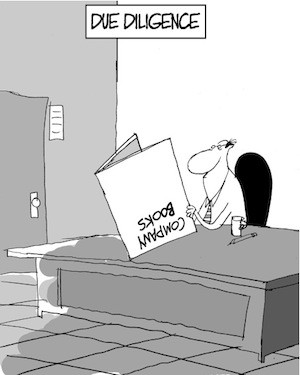It’s a new world out there.

As investors, we’ve been used to a private fundraising framework that is being completely turned upside down by the public token sale mechanism.
As a venture investor, evaluating investment opportunities is often your full-time job and decisions impact your career as well as your wallet.
As a venture investor you’re also always given access to a lot of detailed confidential material and the access to the team, in order for you to ask questions. And even if in Silicon Valley deals close in record time, and at the seed stage you have to move fast, for Series A+ you have basically as much time as you want to make an investment decision.
Often, as a venture investor you’re also given information rights and sometimes board seats (even thought we’ve recently seen in many companies that in terms of preventing bad behavior these are fairly useless).
In the ICO world, that’s not the case.
Companies, teams or organizations that lunch public token sales, most often never interact with the final token buyer, and the average token buyer has no way to contact the team other than Twitter or their community tool of choice.
On top of that, ICOs are often on extremely tight deadlines, and are surrounded by a lot of hype.
It’s also usually more technically complicated to due diligence such efforts as code is law, and to fully appreciate what’s going on you need to read and understand the smart contracts behind an offering or the code behind a new protocol.
Given that the fundraising efforts are public plus there is little info and little time, I do believe the diligence efforts should be public as well.
When venture investors see deals they don’t like for some reason, or terms that are not fair, they just pass on the deal, and that’s it.
Because other investors will still be full-time investors that will go through the same process of analysis and diligence, and someone might like the deal. (Oftentimes VCs also interact offline about specific deals to get feedback and ask for things they might have missed, especially in advanced diligence).
In a public fundraising deal, even if reserved for accredited investors in the first phase (the token will reach exchanges sometime), investors aren’t usually full-time professional token investors.
Not everyone has time to dig into whitepapers (let alone understand them) and token sale economics to make a very informed judgment.
Yesterday, I did such an effort given no one would write about it. I wrote my sentiment on the token sale economics of Filecoin.
What has surprised me the most, is that aside from a few notes of dissent and criticism, there has been an overwhelming and amazing reaction online.
This post seems to have changed the perception of the token sale for people, which must mean that they did not know the facts presented in the post. This in interesting because those facts were just hiding in plain sight on the token sale documents. In turn, this means that people are very prone to the hype machine but not many have the time to actually go read and ponder about specific token sales.
This is wrong. But to me it should hardly be surprising: I certainly participated in a few token sales where I did not have much information or insight!
I would surely have loved if someone reported on what they found in the docs (and even more importantly the code) for other projects.
I would have loved if Emin Gün Sirer had started the public conversation with The Bancor Protocol before their token sale had started and I’m sure many others would have as well.
Please,
If you do spend your time looking at projects in the distributed ledger space, please write up your conclusions on projects you understand.